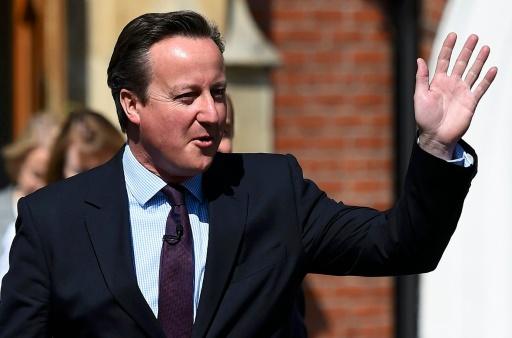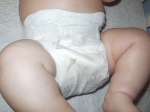
David Cameron argued Tuesday that remaining part of the EU was the "British thing to do" as he faced senior eurosceptic Nigel Farage in a TV grilling two weeks before a knife-edge referendum.
Urgently seeking a breakthrough, the prime minister spoke out against what he called Farage's "little England" vision and played the patriotism card by saying a June 23 out vote would mean "quitting, and I don't think we're quitters".
Despite an assured performance, Cameron faced repeated hostile questions from the audience on high immigration from the European Union to Britain, the "Leave" side's trump card during the campaign.
"I really fear if we leave that we're going to see the economy suffer," Cameron said at London's Olympic Park in a programme for the broadcaster ITV.
"I would say the right thing to do, the British thing to do is to fight for a Great Britain inside the EU and not take the Nigel Farage little England option," he added.
A combative Farage, leader of the anti-EU UK Independence Party, railed against European Commission chief Jean-Claude Juncker and brandished his own passport to argue for stronger border controls.
"We're British, we're better than that, we're not going to be bullied by anybody, not least the unelected, charming though he may be, Jean-Claude Juncker," Farage said.
With 16 days to go, Cameron's "Remain" camp has 51 percent support and "Leave" is on 49 percent, according to a poll of polls by academics at What UK Thinks.
- 'Untruths' and 'nonsense' -
Cameron and Farage did not debate directly with each other during the show, instead facing half an hour each of questions from the audience.
Commentators suggested the debate was likely to have changed few minds.
ITV political editor Robert Peston wrote on Twitter that Cameron was "polished" and Farage "completely unflustered".
Leading BBC presenter Nick Robinson added: "Good for Leave -- immigration dominates. Good for Remain -- Cameron's passion".
Polls on Monday briefly gave the "Leave" campaign a slender lead, sending the pound tumbling as concerns grew on the global markets about turmoil that could follow a Brexit.
The TV event came as "Remain" fought back on Tuesday, with Cameron holding a rare, hastily-arranged press conference where he warned voters against believing "untruths" and "nonsense" peddled by the pro-Brexit campaign.
He rejected claims that a non-eurozone Britain could be forced to contribute to future eurozone bailouts and that its EU budget rebate was at risk.
World Trade Organization Director General Roberto Azevedo became the latest head of a major international institution to warn about the dangers of Britain leaving.
He said British exporters could face an extra £5.6 billion ($8.2 billion, 7.2 billion euros) of annual customs duties if Britain pulled out of the EU.
People rushed to register to vote on Tuesday ahead of the midnight (2300 GMT) deadline.
Some 226,000 people applied for the right to vote on Monday alone, including 148,200 under the age of 34 -- a group seen as overwhelmingly in favour of staying in the EU.
- Legitimising racism? -
Before the TV event, Cameron was put on the spot over his failure to hold a head-to-head debate with any leading pro-Brexit figure from his own Conservative party, such as former London mayor Boris Johnson.
Johnson, tipped as a possible successor to Cameron, and justice minister Michael Gove challenged him to face them in a joint statement.
There will be eight main television interviews and hustings between now and June 23. Cameron is only appearing in three and will not directly debate with the "Leave" camp in any of them.
Farage is not part of the official Vote Leave campaign but has cut a high profile with his relentless calls to reduce the number of EU migrants coming to Britain.
Official figures last month showed that 270,000 EU citizens arrived in 2015, up 6,000 on the previous year. Britain has a population of roughly 64 million.
Archbishop of Canterbury Justin Welby made a rare political intervention Tuesday by suggesting Farage had been "giving legitimisation to racism" for "political ends" during the referendum campaign.
Farage dismissed the suggestion during the TV show. afp


































